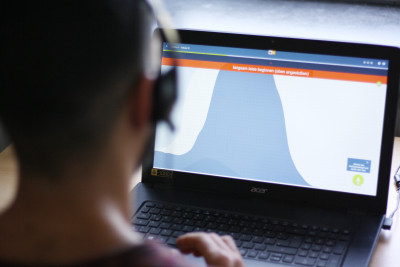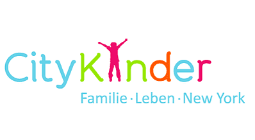Today, stuttering affects more than 80 million people worldwide – regardless of language, geography, or ethnicity. In the US, almost 4 million people are deeply affected by this huge impediment to conversation. Blockages and interruptions can occur in every communication experience and the avoidance of social settings is an often-observed consequence. Therapy sessions cost between $100-$150 per hour and are usually not covered by health insurances. These financial strains in addition to the time-consuming nature of an in-person therapy lead to an overwhelmingly large percentage of people who stutter having no access to an evidence-based therapy method.
Speechagain is very involved in raising public awareness of stuttering and its personal implications. They are always looking for people who stutter themselves and want to test their therapy or for people willing to share their personal stories.
Just reach out to: [email protected] or go to their website: www.speechagain.com.
Speechagain, a German-founded company, set out to solve this problem by changing the way therapy is delivered. In order to do so, it developed the first solely online stuttering therapy which is based on a proven therapy method. Thanks to its cloud-based nature, the personal software is accessible anywhere and anytime, diminishing the need for long drives to a therapist. Speechagain’s patented technology is based on specialized speech recognition and feedback algorithms. This enables the software to evaluate the user’s exercise and give real time feedback – simplifying and mimicking the work of a therapist. As Johanna Joch, Speechagain’s US-General Manager explains it: “It was about time that stuttering therapy could profit from digitalization and get a true remake. For that, we collected a library of sound characteristics with real speakers as a basis for artificial intelligence processing. The AI is now able to guide the user towards the correct way of getting into a word. In easy words: You see the word or sentence, you say it into the microphone and instantly see your voice curve. The feedback will then tell you what you can improve on and help you monitor your progress. We started this company to support every person to speak and be heard – clearly and effortlessly.”
The Speechagain platform provides interactive speech exercises, practice sequences of everyday situations, and theoretical knowledge about stuttering to affected individuals. People who stutter can practice with simulations of difficult in-person communications and learn to slowly overwrite negative or even traumatic situations with positive, more fluent ones.
What is your story? How did it start? One of Speechagain’s co-founders and the therapeutic originator, Alexander Wolff von Gudenberg, drew from his own experiences as a person who stutters in his quest to help and change the lives of others with his speech impediment. Beginning in his early childhood, he got to intimately know the struggle of different therapies. Within just 20 years, he tried as many as 12 different therapies to improve his stutter. This experience led him to later found the Kassel Stuttering Institute, which is now one of Europe’s leading providers in stuttering treatment and the largest institution of its kind in Germany. In order to make the institute’s evidence-based therapy method available to everyone, he joined forces with the Berlin-based company builder Digital Health Factory. This collaboration brought together the experience of a high-quality therapy and a strong passion for digital and user-friendly healthcare innovation to create Speechagain.
What are the highlights of Speechagain’s success story? Speechagain’s American success story started in 2017, when the startup was selected by the renowned German Accelerator Tech program, an official program of the German Federal Ministry for Economic Affairs and Energy, to received assistance, training and coaching in New York City. The program enables promising German companies with innovative products to receive mentorship and market knowledge.
Later in 2017, Speechagain was selected the winner amongst over 100 participants and received the acclaimed Eugen-Münch Prize for practical applications of innovative health services. The prize included a grant of 20,000.00 EUR. That same year, Speechagain’s innovative concept struck the right chord of the digital health sector and received the acclaimed HIMSS Vienna Startup Slam award at the industry’s largest conference. In June 2018, Speechagain’s crowdfunding campaign together with the GLS Crowd successfully reached its goal of 600,000 EUR in record time, generating the necessary capital to further develop the therapy’s cloud-based solution and to finance the company’s launch in the US market. Additionally, Speechagain was one of the final three nominees for the German American Chamber of Commerce’s Newcomer of the Year Award 2018.
“Our biggest accomplishment so far was definitely to see the first clients come to our platform and practice with Speechagain. This is a first step in helping many others becoming more fluent.” Johanna Joch commented.
Why is the US important for your business and what are your plans? Speechagain’s nature of independent and affordable therapy access makes it an especially attractive tool for people with time constraints, a healthcare budget or just anyone with an affinity for modern technology. The US healthcare system is built on certain services in the self-payer market to complete the “care bundle”. The resulting high costs of health services and, especially for stuttering treatment, a very restricted access to trained therapists called for a solution to fill the void: Not only are specialized therapists sometimes hard to find, particularly in more rural areas, but also do waitlists often have people waiting many months to even get an appointment. Therefore, Speechagain saw great potential with its low-cost, easily accessible therapy that can adapt to everyone’s personal schedule. The option to train in a comfortable, familiar setting also diminishes a stress point for many people who stutter who are often hesitant to interact publicly.






